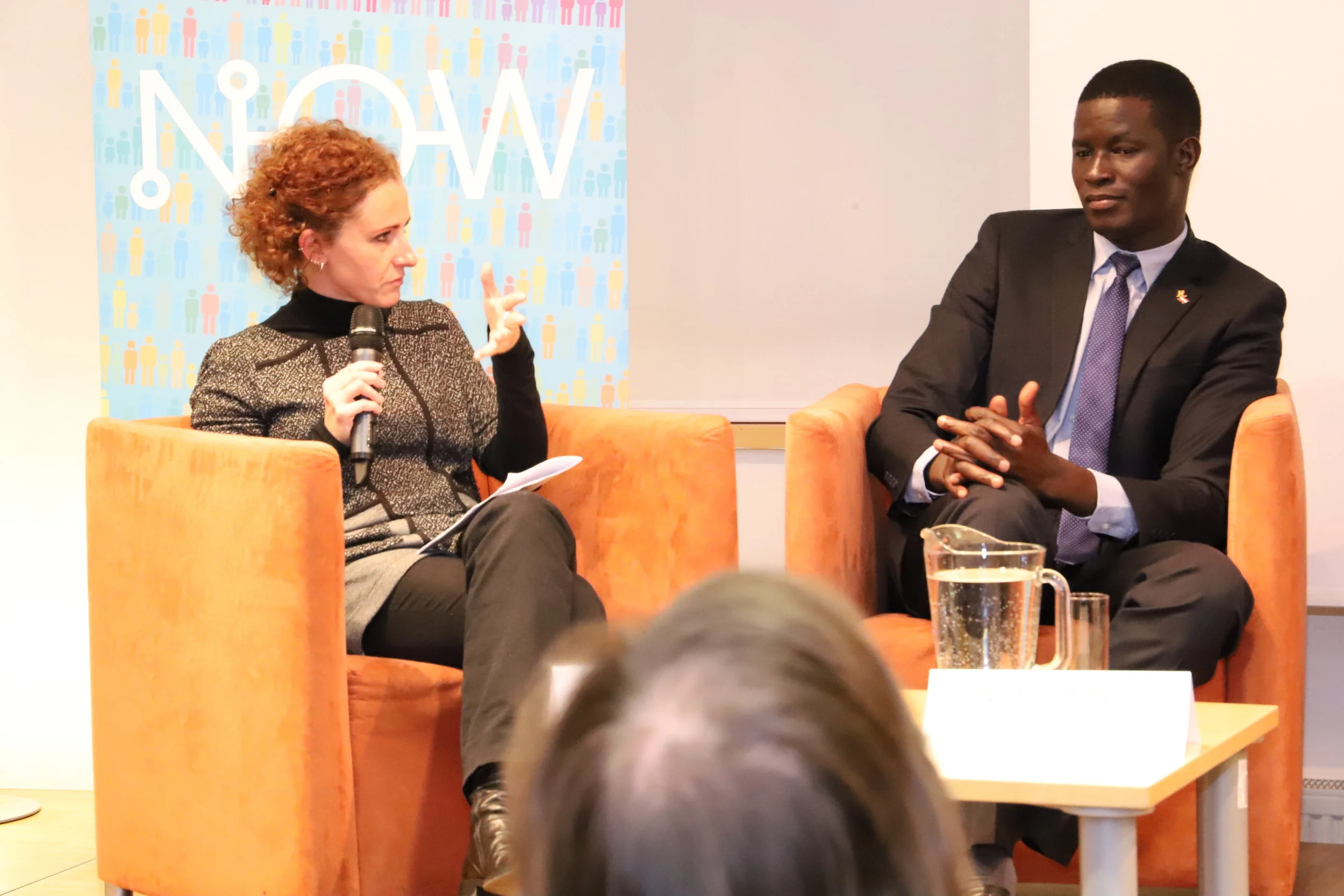Due to the global ban treaty of nuclear weapons, the International Institute for Peace organized a panel discussion in December 2017. The treaty was initiated by the International Campaign to Abolish Nuclear Weapons, ICAN, a coalition of non-governmental organizations in one hundred countries promoting adherence to and implementation of the United Nations nuclear weapon ban treaty. Since their founding, they established a powerful groundswell of public support for the abolition of nuclear weapons. Changes to the normative order of nuclear disarmament and non-proliferation are underway. Frustrated with decades of political deadlock, on July 7 this year, 122 states voted in favor of a Treaty on the Prohibition of Nuclear Weapons at United Nations headquarters in New York City. Some months later, on 10th of December, the Norwegian Nobel Committee awarded ICAN with the Nobel Peace Prize. The agreement was formed against the will of the nuclear weapon states and their alliance partners. The main argument for the holding of these weapons is still it’s deterrent function. Current political situations regarding for example North Korea are often pointed out in that context.
Afternoon Talk with Victor Ochen at UNIDO
As a part of his visit to Vienna the United Nations Industrial Development Organization (UNIDO) in cooperation with the IIP, the Vienna International Development Network and Aphropean Partners, decided to invite Victor Ochen for an afternoon talk at their headquarters and give him the opportunity to share his inspiring thoughts on topics revolving the establishment of peaceful structures and the connection to industrial development as well as the UN’s Sustainable Development Goals. As an ambassador for the United Nation’s SDGs and advisor to the UNHCR Victor Ochen is able to give profound insights into the concepts and backgrounds, but, more importantly, into how these goals can be implemented - especially locally and through the inclusion of the youth into decision making processes.
Agents of Change: African Youth Between Narratives and Realities 🎬
On the 12th of December 2017, the IIP and Act.Now organised - following up on the 4th International Conference NOW on “African Youth and Migration” from September 3-5, 2017 in Kampala, Uganda and a series of Africa-Workshops and public debates organised by the Bruno Kreisky Forum, the VIDC and the IFK from 2016-2017 - a panel discussion on the topic Agents of Change. African Youth Between Narratives and Realities.
Keynote Speech of Angela Kane at the Non-Proliferation Conference in Brussels 🎬
Bericht über die EU Non-proliferation and Disarmament Conference 2017
Vom 12-13 Dezember fand in Brüssel die jährliche EU-Konferenz über Nicht-Verbreitung und Abrüstung von Nuklearwaffen statt. In diesem Rahmen fand auch ein Treffen des Netzwerkes von unabhängigen Think-Tanks statt, an dem Angela Kane und Heinz Gärtner für das International Institute for Peace (IIP) und das Österreichische Institut für Internationale Politik (oiip) teilnahmen.
Flashmob für den Frieden
Am 11. Dezember versammelten sich 300 Schüler bei der U-Bahnstation Friedensbrücke, um ein Zeichen für den Frieden zu setzen. Mehrere Schulklassen aus Brigittenau und Alsergrund trafen an diesem Montagvormittag bei der, die beiden Bezirke verbindenden Brücke, zusammen. Während Friedenslieder, wie beispielsweise das Anti-Kriegslied „Sag mir wo die Blumen sind“ gesungen wurden hielten die Schüler ihre bunten handgeschriebenen Schilder hoch auf welchen Sprüche wie „Make Love not War“ oder "Für den Frieden halt' ma zam" zu lesen waren
Bericht von Heinz Gärtner "Mediterraner Dialog"
Ende November/Anfang Dezember fand in Rom der Mediterrane Dialog zum dritten Mal, eine Konferenz mit Spitzenpersönlichkeiten aus Politik, Wirtschaft, Zivilgesellschaft, Medien und Wissenschaft statt. Von den etwa 1000 Teilnehmern waren 40 Regierungschefs und Minister. Darunter waren der russische Außenminister Sergej Lavrov, die Hohe Repräsentantin der EU für Außen- und Sicherheitspolitik Federica Mogherini, der italienische Premierminister Paolo Gentiloni und der Außenminister Angelino Alfano, der Außenminister des Iran Javad Zarif, der Präsident des Libanon Michel Aoun, sowie die Außenminister der meisten arabischen und nordafrikanischen Staaten.
Interview mit Angela Kane auf SWR1
Am 16.11.2017 wurde die ehemalige Hohe Repräsentantin der UNO und nunmehrige Vizepräsidentin des International Institute for Peace (IIP), ANGELA KANE, im SWR 1 zu ihrer langjährigen diplomatischen Karriere, die damit verbundenen Herausforderungen und ihrer Einschätzung der internationalen politischen Lage, interviewt.
"If my life as a child soldier could be told...." 🎬
With an estimated number of 250.000 children, the issue of child soldier recruitment continues to be a problem of high importance. Junior Nzita used to be one of those children fighting and killing with weapons for purposes they never knew. Fortunately he managed to escape the children’s army in DRC and is now running an NGO, which is trying to give perspectives to children other than serving to the weapon. In his position as a UN ambassador he tries bringing together the international community for ostracizing child soldier recruitment.
Just Intervention? Between R2P and Prohibition of Force 🎬
On the 16th of October 2017, the IIP organised a conference and book presentation on the topic "Just Intervention? Between R2P and Prohibition of Force". The book consists of 16 articles from different authors and disciplines. Questions like:
- Which intentions are eventually leading to an armed intervention and on which theoretical and judicial basis is it exercised?
- Who is realizing them and which purposes are behind them?
- When is an intervention seen as efficient and effective and sustainable?
- Which role did Europe have in this regard and is there a difference between legality and legitimacy in international relations?











